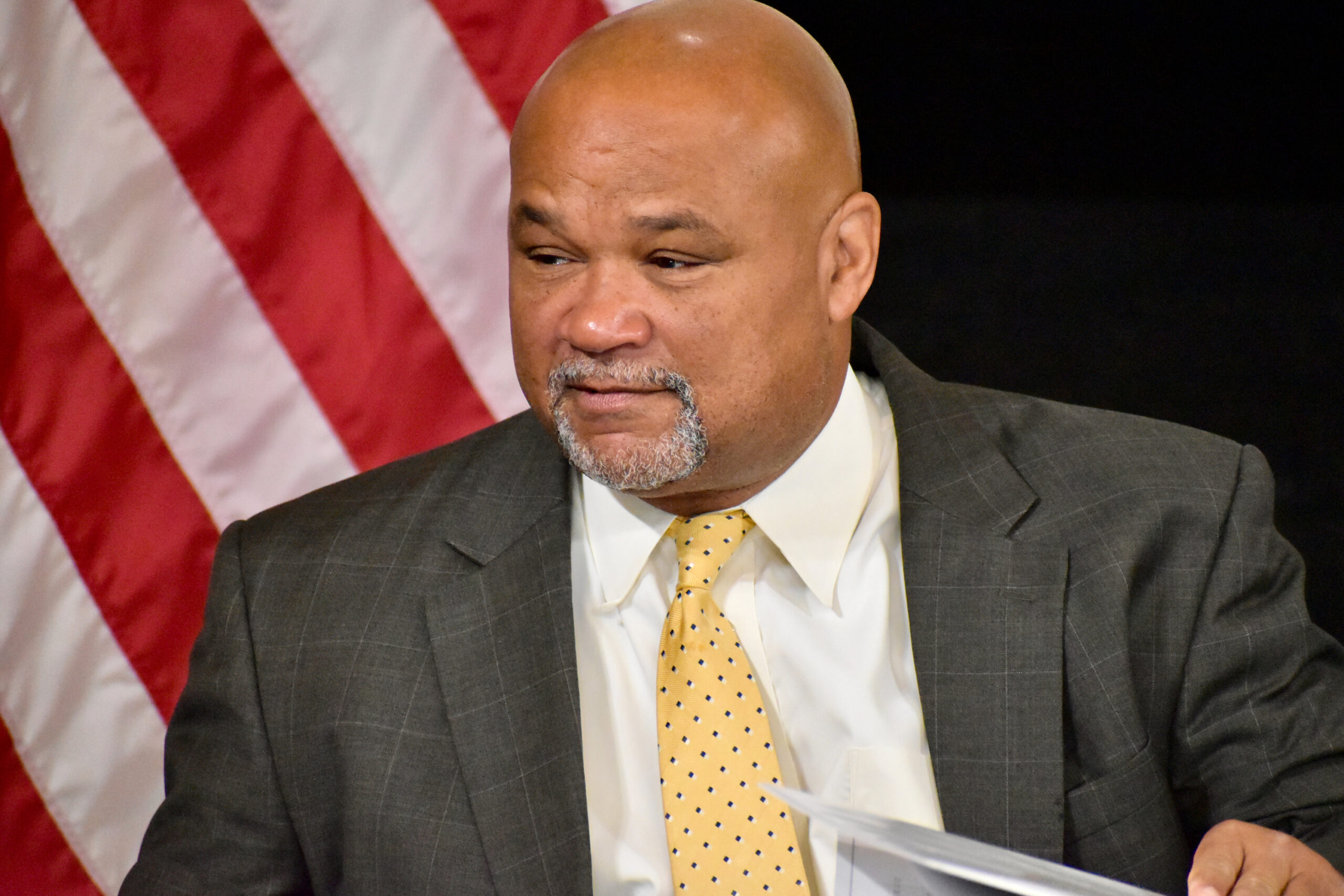Treasurer vows increased scrutiny of ‘minority business enterprise’ goals by state spending panel

State contracts coming to the Board of Public Works with inadequate participation from historically disadvantaged business owners will face additional scrutiny from at least one board member.
Treasurer Dereck Davis (D) vowed to provide additional review after the board was asked to approve a $17 million tobacco cessation services contract.
“I’m always going to harp on [minority business enterprise] numbers,” said Davis, speaking to state Deputy Health Secretary Dr. Nilesh Kalyanaraman. “If we’re not meeting that, you’re going to hear from this old goat, I’m telling you. It’s going to come up every single time.”
At issue was a contract for smoking cessation services valued at more than $17.1 million. The contract with South Carolina-based Consumer Wellness Solutions calls for a 24-hour, seven-day a week call center. Five percent of the contract — about $855,000 — is earmarked for subcontractors that qualify under the state’s Minority Business Enterprise (MBE) program.
Davis – one of three members of the Board of Public Works — noted a personal interest in tobacco cessation programs. He spoke of a relative suffering from long-term use of tobacco products.
“This is not just a contract to me,” said Davis. “It’s very, very personal, deeply personal. Beyond that, I still have a job to do, and my job is to make sure — at least part of it — that not only are we getting full value for our dollars, that everyone has an opportunity to share in the state’s economy, if you will. I just think we could have done better with this than 5%. I know if we have that threat of loss of contract they would have done better.”
Davis was the only member of the panel to raise the issue or speak on the contract. He later joined Gov. Wes Moore (D) and Deputy Comptroller Andrew Schaufele, who filled in for Comptroller Brooke Lierman (D), to unanimously approve the contract.
Neither Moore nor Schaufele commented on the contract. Following Davis’ comments, Moore replied: “well said” and called for a vote.
Consumer Wellness, the current incumbent contractor, will provide all counseling services for the next five years. Despite three companies expressing an interest in the contract, only Consumer Wellness submitted a bid.
Kalyanaraman said the health department did try to increase participation by racially diverse subcontractors, “but the core contract is to provide those counseling services and there aren’t a lot of other facets to that work beyond the core mission.”
The contract reserved for Minority Business Enterprise contractors was equally split. One vendor will provide design services to reach underserved groups including the LGBTQ community as well as homeless and rural populations, said Kalyanaraman.
Davis was unsatisfied, saying agencies needed to “lean on” contractors to get them to increase the percentage of racially diverse and women-owned businesses
“We were told the same thing on a different [contract] and once the threat of the contract not being awarded, the vendor magically found a way to increase the MBE goal,” said Davis.
The contract to which Davis referred was a marketing and public relations contract for the state’s 529 college savings program with The Hatcher Group, based in Bethesda.
Davis said he had the contract pulled from a previous board agenda because the percentage of racially diverse and women-owned businesses was not satisfactory.
“I hold my office equally accountable,” said Davis.
The new contract includes an 18% participation rate, nearly three times the previous participation rate.
Davis said he thought the initial MBE goal was “unacceptable so I held it and basically told the folks that if they couldn’t get it to an acceptable goal that we would have to re-bid it until we could get there. They figured how to get it to an acceptable goal and that’s why it was before us today.”
The threat of re-bidding a contract should be used more, he said.
“I hope that we will keep in mind that people will tell us anything but they can do better if there is the threat of a loss of the contract,” he said. “That has been proven.”




 Creative Commons Attribution
Creative Commons Attribution